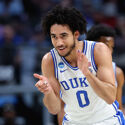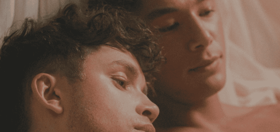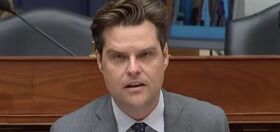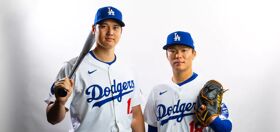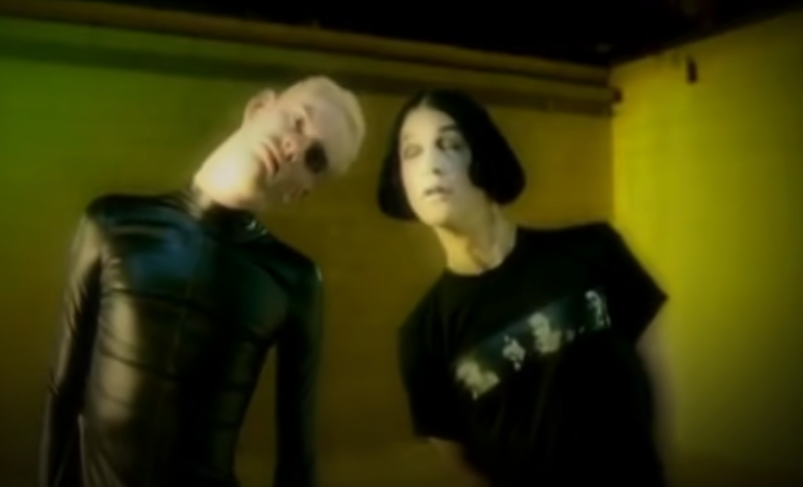
Emerging at the end of the Britpop era in the late 1990s, Placebo, a British alternative rock band, made a bold statement with their brash, angsty, and sexually ambiguous image.
Fronted by openly bisexual singer Brian Molko, they shattered the norms of the time and infused the spirit of gothic glam into the post-grunge landscape. Among their repertoire, one song stood out as a manifestation of their identity and vision: the breakthrough single, “Nancy Boy.”
“Nancy Boy” encapsulated Placebo’s rejection of Britpop’s machismo and binary ethos while making a strong political statement about the fluidity of sexuality. Molko fed a desire to confuse and provoke through their image, fashion, and makeup, with the song becoming a perfect soundtrack to their mission.
The track itself was a three-minute rush of angry, punk-infused guitar noise, driven by Molko’s quivering vocals. It unleashed unfettered hedonism and addressed themes of illicit sex, gender-bending, intoxication, and the allure of the underground. It was a far cry from the more conventional sounds of other bands of the time and was the definition of alternative.
Molko wrote “Nancy Boy” in 1994, during the height of Suede’s popularity. Inspired by a quote from Suede’s frontman Brett Anderson, who claimed to be a bisexual man without homosexual experiences, Molko aimed to tackle the commodification of sexuality and wrote about sexual tourism.
The chorus, “It all breaks down at the first rehearsal,” depicts someone who delves into unfamiliar territory and realizes they are out of their depth, in this case, with sexual experiences with the same sex.
Clad with their signature gothic aesthetic, featuring a pale face, red lips, and eyeliner, Brian Molko, along with bandmate Stefan Olsdal, had embraced cross-dressing and androgyny in their own way, establishing their distinct style and bold disposition in the pop landscape.
But make no mistake, Placebo wasn’t doing this for shock value, this is who they are, and they aimed to challenge the notion that sexuality and gender expression are just experimentation for experimentation’s sake.
The band’s self-titled debut album, released in 1996, had modest success, but it was “Nancy Boy” that propelled them into the charts, securing a spot on Top of the Pops and rubbing some people the wrong way due to its subversive lyrics.
“Nancy Boy” ignited discussions about its ambiguous nature. Some fans interpreted it as a portrayal of a prostitute, while others connected it to Molko himself. The lubricious lyrics, such as “Kind of buzz that lasts for days/Had some help from insect ways,” touched on aphrodisiacs and substances that enhance sexual desire.
Molko clarified that “Nancy Boy” wasn’t about anyone specific but emphasized how shocking it was for society to still be unsettled by the image of a “c*ck in a frock” at the end of the 20th century. It challenged traditional notions of masculinity and pushed boundaries by venturing into grunge territory with a dress, subverting expectations and provoking both admiration and controversy.
Through it all, Placebo’s “Nancy Boy” remains an iconic and provocative song that defied the conventions of Britpop. Led by openly bisexual band members, it offered an authentic alternative for queer people looking for visibility on the world stage and created space for the freedom of gender expression for a community that so desperately needed it.
Placebo’s rejection of societal norms left an indelible mark on alternative rock, and “Nancy Boy” lives on as a pinnacle moment in the genre. Where bands so often teetered the lines in order to sell, the band crossed it unabashedly and embodied the spirit of what queer expression in popular music could be.


